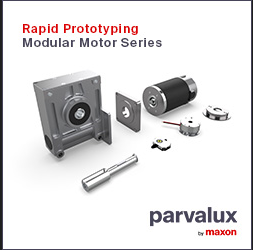The Industrial Internet Consortium and the Linux Foundation’s LF Edge Announce Liaison
Organizations to further enable digital transformation
The Industrial Internet Consortium® (IIC™), now incorporating OpenFog, and the Linux Foundation's LF Edge, an umbrella organization establishing an open, interoperable framework for edge computing independent of hardware, silicon, cloud, or operating system, announced they have agreed to a liaison to work together to advance their shared interests. Under the agreement, the IIC and LF Edge will work together to align efforts to maximize interoperability, portability, security and privacy for the industrial Internet.
Joint activities between the IIC and LF Edge will include:
Identifying and sharing practices;
Collaborating on test beds and experimental projects;
Working towards interoperability by harmonizing architecture and other elements;
Collaborating on common elements;
Other activities which both parties agree to cooperate in to advance the activities above
"Through its liaison program, IIC works with industry liaison partners to build out the Industrial IoT ecosystem in an effort to accelerate IIoT adoption," said Wael William Diab, Chair of the IIC Liaison Working Group and Secretary of the IIC Steering Committee. "Open source communities play an important role in the industry ecosystem. The expansion of the scope of liaison collaboration between IIC and the Linux Foundation builds on the successful collaboration and further enables the digital transformation."
LF Edge brings together a software stack with the best of telecom, cloud and enterprise (representing location, latency and mobility differentiation) through projects including Akraino Edge Stack, EdgeX Foundry, Home Edge, Open Glossary of Edge Computing and Project EVE.
"LF Edge's primary goal is to simplify and deliver a unified edge computing platform supported by a diverse ecosystem," said Arpit Joshipura, general manager, Networking, IoT and Edge Computing, the Linux Foundation. "Formalizing a relationship with the IIC builds a strong collaboration and further accelerates IIoT adoption, digital transformation and the edge."
LF Edge and the IIC have agreed to meet regularly to exchange information, with a targeted joint workshop still in the works.
The IIC Liaison Working Group is the gateway for formal relationships with standards and open-source organizations, consortia, alliances, certification and testing bodies and government entities/agencies. The agreement with the Linux Foundation is one of a number of agreements made by the IIC Liaison Working Group. For a list of current liaisons, click here.
About the Linux Foundation & LF Edge
The Linux Foundation is a nonprofit organization enabling mass innovation through open source. They recently launched LF Edge, an umbrella organization which is working to establish an open, interoperable framework unified across IoT, Cloud, Telecom and Enterprise Edge communities, that will support emerging edge applications in non-traditional video and connected things requiring lower latency and faster processing.
About the Industrial Internet Consortium
The Industrial Internet Consortium, now incorporating OpenFog, is the world's leading membership program transforming business and society by accelerating the Industrial Internet of Things (IIoT). The IIC delivers a trustworthy IIoT in which the world's systems and devices are securely connected and controlled to deliver transformational outcomes. The Industrial Internet Consortium is a program of the Object Management Group (OMG). For more information, visit http://www.iiconsortium.org.
Note to editors: Industrial Internet Consortium is a registered trademark of OMG. For a listing of all OMG trademarks, visit http://www.omg.org/legal/tm_list. All other trademarks are the property of their respective owners.
Featured Product

